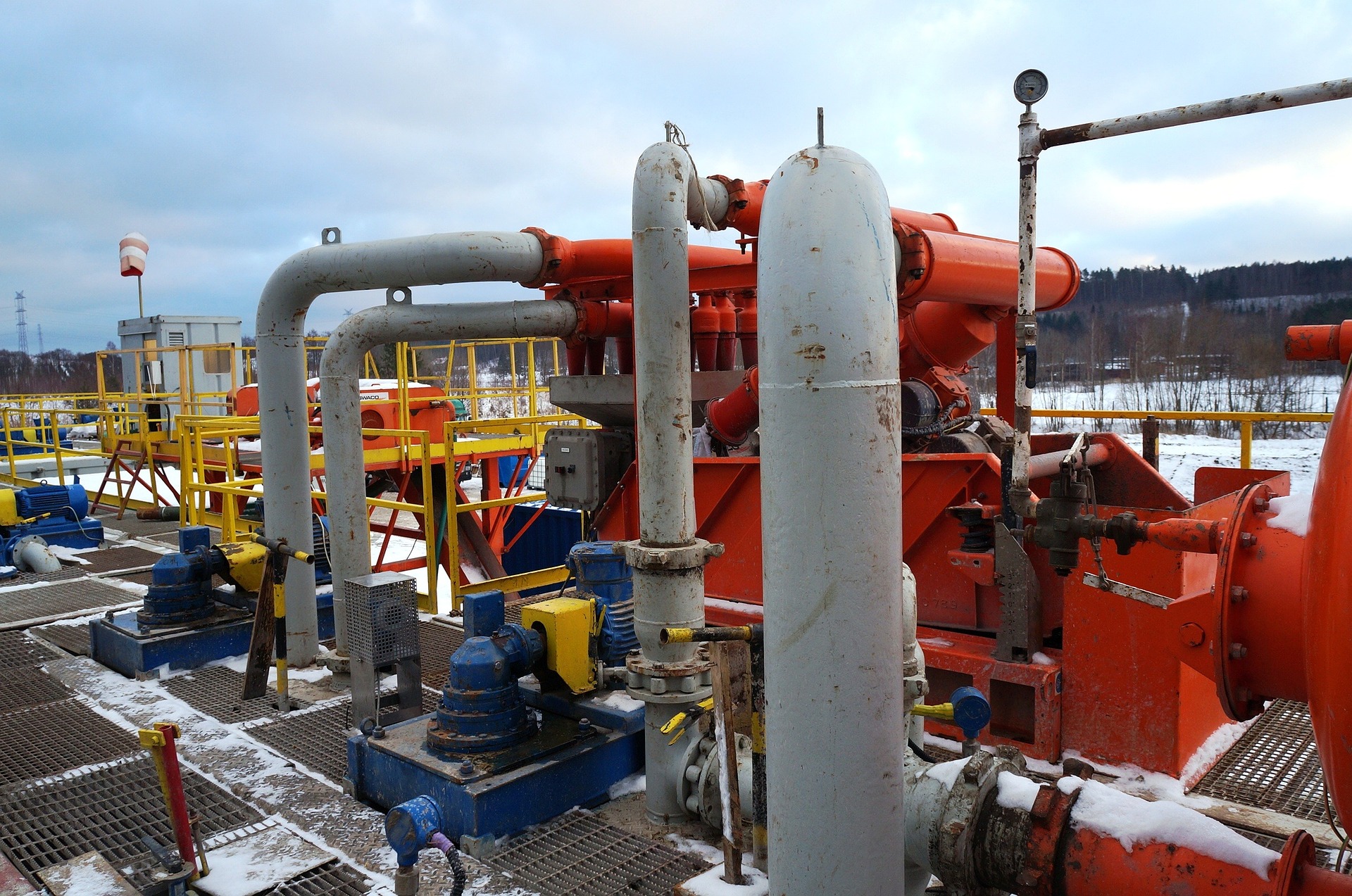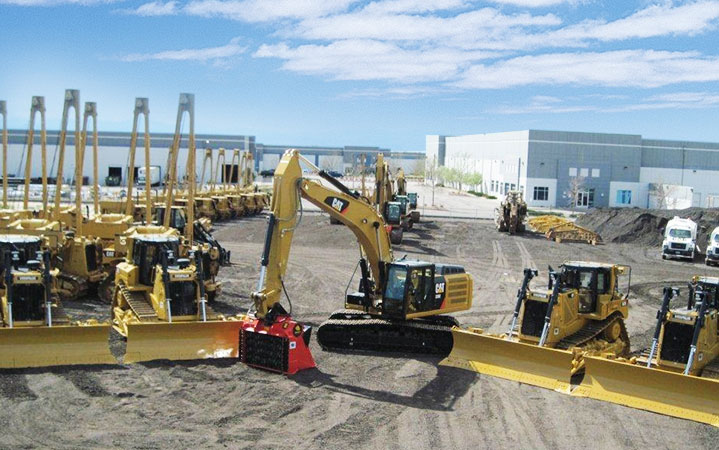Superior Oilfield Rentals oilfield: why it matters
Wiki Article
A Comprehensive Guide to the Various Kinds Of Oil Field Equipment and Pipeline Equipment Available
The oil and gas industry relies greatly on customized devices for reliable removal and transportation. Different types of machinery, from drilling rigs to tank, play important functions in this complicated procedure. Each tool offers distinctive features that add to overall operational success. Comprehending these parts is essential for anybody associated with the industry. As the market advances, so also do the innovations that support it. What developments are on the horizon?
Drilling Rigs: The Foundation of Oil Expedition
Drilling rigs work as the essential machinery in the domain name of oil expedition, enabling firms to gain access to hydrocarbon gets buried deep beneath the Planet's surface. These rigs can be found in different kinds, consisting of land rigs, offshore rigs, and mobile units, each created to operate in certain environments. Equipped with innovative innovation, drilling rigs can permeate geological formations with precision, ensuring effective resource extraction. The structural honesty and functional abilities of these rigs are important, as they should withstand extreme conditions and significant stress. The choice of a boring rig affects the general job expense and timeline, making it a crucial consideration for oil business seeking to enhance their expedition initiatives and optimize efficiency in their procedures.Pumps: Important for Fluid Movement
In the oil extraction process, the function of pumps is considerable, assisting in the motion of liquids throughout numerous stages of production. Pumps are important for transferring crude oil, water, and other fluids from below ground tanks to the surface and afterwards via pipelines to refineries. They are available in different kinds, consisting of centrifugal, positive displacement, and submersible pumps, each offering specific functions based on the fluid features and operational needs. Centrifugal pumps are commonly used for their efficiency in high-flow applications, while favorable displacement pumps stand out in dealing with viscous fluids. The choice of pump effects general efficiency, operational safety, and maintenance prices. Proper option and upkeep of pumps are essential for maximizing manufacturing and lessening downtime in oil field procedures.Valves: Controlling Circulation and Pressure

Valves play a vital duty in handling the circulation and stress of fluids within oil fields and pipelines. Various sorts of shutoffs offer distinctive applications, each made to satisfy certain features basic for effective procedure - Superior Rentals near me. Comprehending the qualities and usages of these shutoffs is essential for optimizing system performance and security
Kinds of Valves
Crucial components in oil field operations, shutoffs play a critical function in managing the circulation and stress of fluids within pipelines and devices. Numerous sorts of valves are utilized to meet the diverse needs of oil and gas production. Common types include gate valves, which provide a straight-line circulation and marginal pressure drop; world valves, known for their strangling capacities; and sphere valves, recognized for their fast on/off control. Additionally, check shutoffs protect against backflow, while butterfly valves offer a light-weight option for controling flow. Each shutoff type is designed with details products and setups to hold up against the rough problems usually discovered in oil fields, ensuring integrity and performance in procedures. Comprehending these types is crucial for effective system monitoring.Valve Applications and Functions
While numerous kinds of valves serve distinctive functions, their key applications focus on controlling flow and pressure within oil and gas systems. Valves such as gate, world, and sphere shutoffs regulate fluid motion, guaranteeing peak performance and safety. Entrance shutoffs are frequently utilized for on/off control, supplying marginal flow resistance. World shutoffs, on the other hand, deal precise flow law, making them suitable for strangling applications. Ball shutoffs are preferred for their quick procedure and limited sealing abilities. On top of that, pressure safety valve are vital for stopping system overpressure, safeguarding equipment integrity. On the whole, the suitable choice and application of shutoffs improve functional performance, making sure the dependable transportation of oil and gas via pipes and handling centers.Compressors: Enhancing Gas Transport
Compressors play a critical function in the reliable transportation of natural gas, making sure that it relocates smoothly through pipes over lengthy distances. These tools increase the pressure of gas, allowing it to conquer rubbing and elevation adjustments within the pipeline system. In addition, compressors help with the harmonizing of supply and demand, accommodating changes in intake and production prices. Different sorts of compressors are employed in the industry, including centrifugal, reciprocating, and rotary screw compressors, each offering unique advantages based upon the functional needs. Normal maintenance of these compressors is important to make best use of efficiency and reduce downtime, eventually adding to a reliable gas transport network. Their critical function emphasizes the relevance of compressors in the general oil and gas facilities.Storage Tanks: Safe and Efficient Liquid Monitoring
Efficient transport of natural gas counts on numerous supporting systems, one of which is the proper monitoring of tank. These containers play a crucial function in safely containing fluids, ensuring that operational efficiency is maintained while decreasing ecological dangers. Built from durable products, they are developed to withstand high pressures and harsh aspects. Properly sized and strategically situated, tank assist in the smooth flow of natural gas and various other fluids, preventing traffic jams in supply chains. Normal maintenance and surveillance are necessary to find leaks or architectural concerns, promoting safety and security and compliance with governing criteria. Ultimately, the reliable administration of tank is critical for the general stability and reliability of the oil and gas industry's liquid handling systems.
Pipeline Equipments: Facilities for Transportation
Pipeline systems work as the foundation of the oil and gas industry, helping with the effective transportation of hydrocarbons over substantial distances. These systems contain various parts, including pipelines, valves, pumps, and compressors, all diligently created to guarantee smooth circulation. The products utilized in pipeline construction, frequently steel or high-density polyethylene, are picked for sturdiness and resistance to corrosion. Pipeline networks can extend throughout land and water, attaching manufacturing websites to refineries and warehouse. In addition, website advanced innovation allows real-time tracking of circulation prices and pressure degrees, boosting operational effectiveness. The strategic positioning of these pipelines minimizes environmental effect while maximizing source access, consequently playing an essential role in meeting power needs around the world.Safety Equipment: Making Sure Worker and Environmental Management
The operation of pipeline systems, while crucial for power transportation, likewise offers substantial safety challenges for workers and the setting. Security tools plays a considerable role in mitigating these threats. Individual safety tools (PPE) such as safety helmets, gloves, and non-slip footwear safeguards employees from physical threats. In addition, gas detection systems keep an eye on for leakages, making certain that harmful substances do not pose a hazard to employees or the bordering ecological community. Emergency situation shutdown systems are necessary for swiftly halting operations throughout a crisis, avoiding potential calamities. Spill control materials, including absorbents and obstacles, are essential for reducing environmental impact. On the whole, spending in all-encompassing safety and security tools is important for preserving operational honesty and securing both workers and the environment in the oil and gas market.
Often Asked Inquiries
Just how Do I Select the Right Oil Field Equipment for My Job?
Selecting the best oil field tools entails reviewing job specs, budget constraints, and operational needs. Consider factors such as equipment integrity, compatibility with existing systems, and the vendor's track record to ensure peak performance and safety.What Are the Upkeep Demands for Oil Field Equipment?
Maintenance needs for oil field equipment consist of routine evaluations, lubrication, and timely fixings. Operators must also comply with maker guidelines, display performance metrics, and guarantee conformity with security policies to enhance long life and efficiency.
How Can I Guarantee Conformity With Environmental Rules?
To assure conformity with environmental policies, firms must conduct routine audits, carry out finest techniques, purchase training, keep proper paperwork, and stay updated on regulation (Superior Oilfield Rentals Texas). Cooperation with ecological agencies can likewise boost adherence to regulationsWhat Is the Ordinary Lifespan of Pipeline Equipment?
The average lifespan of pipeline tools commonly varies from 20 to 50 years, depending upon elements such as worldly top quality, ecological conditions, and maintenance techniques. Normal assessments can considerably influence long life and operational effectiveness.Just how Do I Safely Deliver Oil Field Equipment to Remote Locations?
Carrying oil field devices to remote locations needs careful preparation, including course evaluation, securing licenses, using proper vehicles, and ensuring security protocols are complied with. Correct training and communication amongst staffs are crucial for effective transportation.Report this wiki page